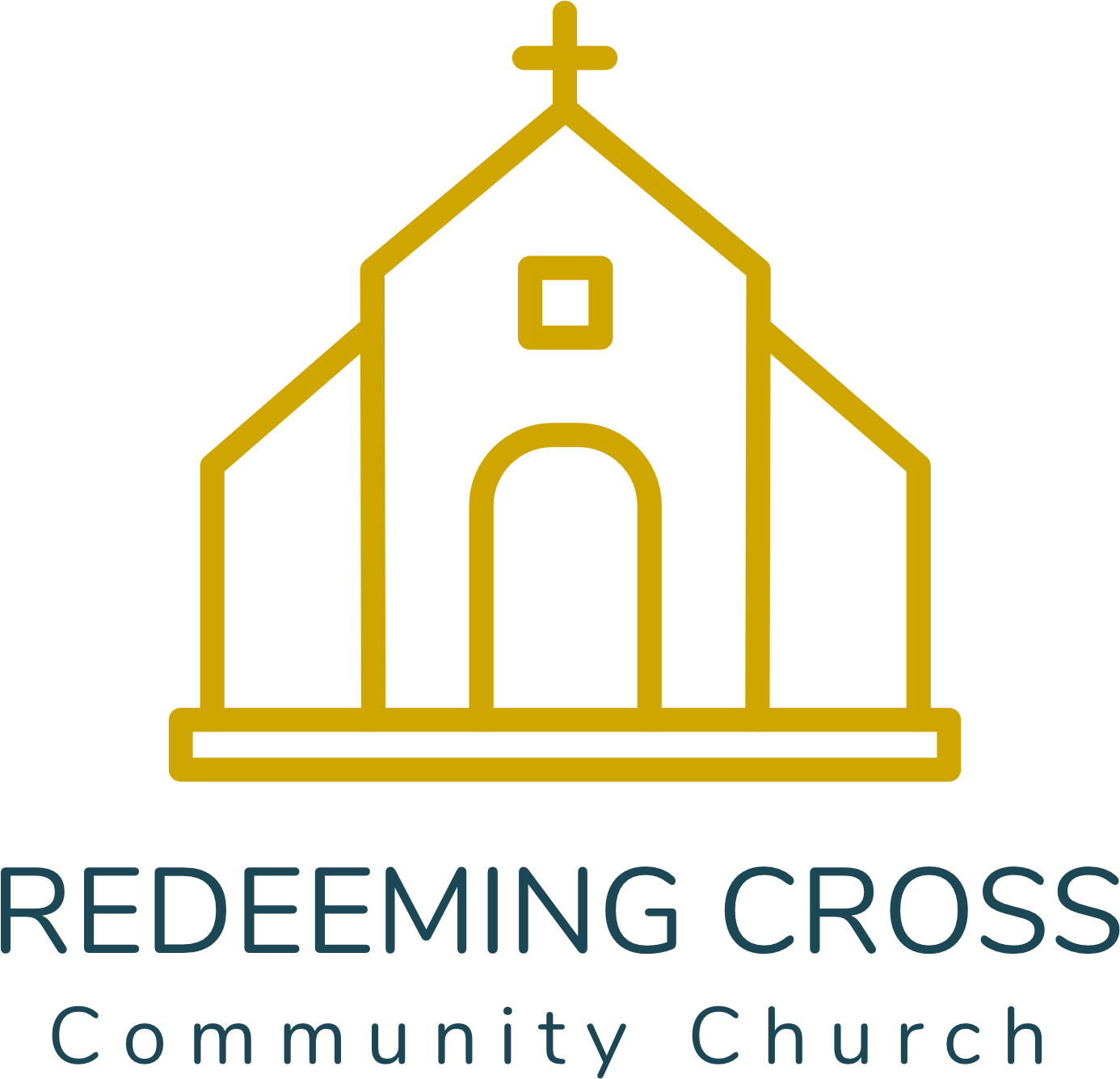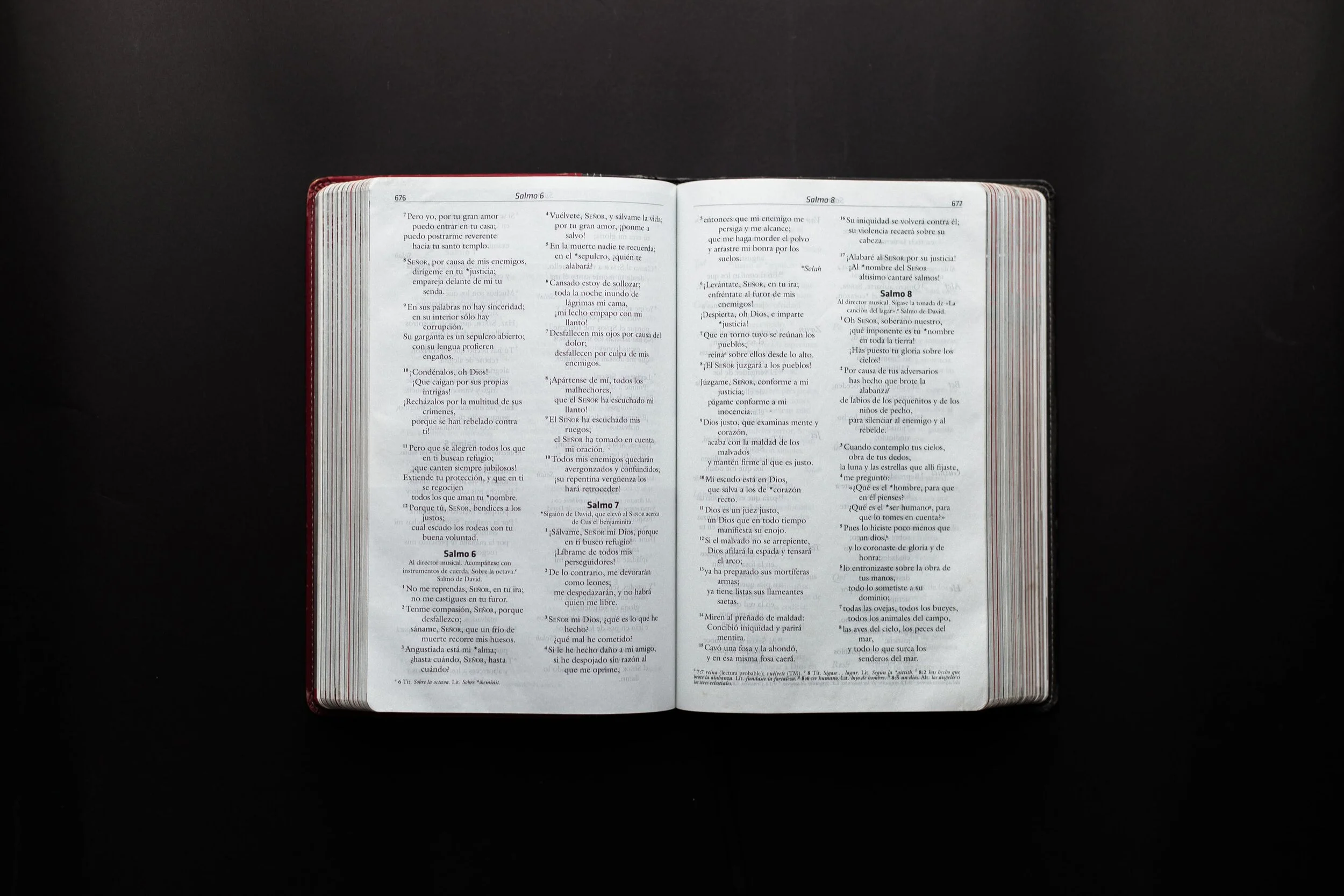In Sanity
King Nebuchadnezzar went insane. Everything he spake did not have logic. God humbled the ruler of the world and made him eat grass. You’ve heard of the Daniel Diet, but what about the Nebuchadnezzar Diet? In a word, he got rekt. It was a complete undoing from the inside out. You can read all about it in Daniel 4.
Your sanity—your ability to think and reason and interact with reality—is a gift from God. It is a sparkling jewel that sets you apart from the animal kingdom. Your reason is a platform that has been given to you on which to know the Creator who lives forever. A mighty gift! Use your intellect today to seek God in his word, to rest in the finished work of his Son, and to praise and worship him who is real. Isn’t that what sanity is all about?
What is the Reformed Doctrine of Holidays?
Tis the season. Holidays are approaching in rapid succession. Families shall gather and celebrations will ensue. But I’m sure in the midst of it all there’s one nagging question driving you mad: What is the Reformed doctrine of holidays? Not to worry! We are here to help.
The short answer is that the Reformed tradition has all the holidays. 52 to be exact. That’s right, every Sunday. God blessed the people of Israel with many feast days in which to enjoy his good gifts; he has blessed his church with feasting days of plenty, one in every seven!
So as you gather with your family and friends over the next several weeks to eat and enjoy, let it be a reminder that, in Christ, you have this to look forward to every single week. For the Lord’s Day is the perfect day to gather with family and friends to feast and fellowship.
Keep It Simple Not Simp
According to manofmany.com, “Put simply, a simp is: Someone who tries way too hard to impress the person they like, often going above and beyond to satisfy their every need.” In one of life’s many glorious ironies, simping typically produces the opposite of its intended effect. You know what they say, Simpin ain’t easy.
The prophet (or wizard, according to at least one preacher) Daniel was, metaphorically speaking, no simp. He found himself in the courts of the single most powerful king on the planet and did not change who he was to impress him. Instead, he kept things simple: he stuck to his simple faith and to God’s simple laws and let the chips fall where they may. And what was the result? A simp’s dream: respect and honor.
BELOVED, IN MATTERS OF FAITH KEEP IT SIMPLE NOT SIMP.
What is the Value of A Sermon Series?
We are about to do something at our church that hasn’t been done in an age. That’s right, we are starting a sermon series (through Daniel!). Today we shall consider three advantages of preaching through a book of the Bible.
A series allows a Deeper focus.
Digging into one book of the Bible can be an exciting and catalyzing force upon the congregation. The Bible is absolutely inexhaustible and a sermon series gives God’s people a chance to see anew just how deep the Scriptures are. It also encourages ready attendance since who would want to miss out on the Lord’s Day dig?
A series teaches hermeneutics.
Hermeneutics is just a fancy word that means the way we interpret the Bible. A preacher should show his method of interpretation in every sermon, but the preacher’s technique of getting at the truth of the text will show itself more clearly in a series. This will equip Christians to understand the text more deeply and to read their own Bibles more better.
A series forces us to face uncomfortable texts.
This is one of the classic defenses for verse-by-verse preaching through books of the Bible. It’s true within reason, for the preacher retains the liberty to choose which book he takes up in the first place. But once locked into a biblical book, the preacher will be forced to deal with its difficult passages as well as the easy ones. This helps showcase the full-orb of biblical truth to God’s people.
3 Prayers for your Church
If you are blessed to be part of a local church, you know that the fellowship is made up of believers who are weak, just like you. One of the reasons our Lord Jesus has called us together into local church communities is so that we can pray for and encourage one another. Here are three prayers to pray for your local church.
Pray for humility
Pride was the original sin (1 Tim 3:6). It drove a special angel to leave his heavenly abode, rise up against his Maker, and become the devil. It is the essence of sin, to exalt oneself against God. And now it still rules over other sins and drives them. True gospel humility is the antidote for pride, so let’s pray for God’s blessing upon us.
Pray for faith
It is not enough to be convicted for our sins before God. In fact, all mankind lives with some level of conviction. The great difference maker is faith, and we need lots of it. Faith (trusting God!) is a gift that allows us to rest in the finished work of Christ with joy and contentment. It also empowers us to press forward against sin, temptation, and trials of various kinds. Let’s pray for each other’s faith today.
Pray for unity
The genius of the church is that we are many parts working together. What binds us together is our unity in Christ: our common faith, our common destiny, and our common status as born again persons. A thousand things threaten the unity of our local churches, but Christ holds us together. Let’s ask him to unify us more than ever.
What is the Reformed Doctrine of Mercy Ministry?
The mission statement of our church is “bringing classic Christianity to modern people with simplicity and excellence.” Our faith is old, and we want people to feel that. Christianity has withstood the test of time upon its sturdy foundations which are both ancient and ever-fresh. So no matter when it is in her glorious history, even hundreds of years in the future, the church is always of the same living truth, the same Christian stuff. And one of the main ingredients in the stuff of God’s people is mercy ministry.
Mercy ministry pays attention to the physical needs of people and seeks to meet them in the name of Christ. The early church was exemplary in this: “There was not a needy person among them” (Acts 4:34). Wow. They felt the pains and pinches of others because that’s what God’s children do. We are like our Father who is full of compassion and mercy. He calls us to bring out good things from the treasury box of his Son and give them freely to people in need—especially those believers in our local church community— transforming even simple gifts into tokens of heavenly grace. And it doesn’t get any more Reformed than that.
Where is the Bible?
“Forever, O Lord, your word is firmly fixed in the heavens.“ Psalm 119:89
If you be so fortunate as to own a Bible, you are the envy of a great many people in ages gone by. You own your very own copy of the Holy Scriptures! You have the Bible. But so do other people. It leads one to ask, Where do all these Bibles come from? Where is the Bible stored anyway?
The psalmist tells us that the Bible lies beyond the reach of man’s destroying arm. The Bible is stored off-world, on God’s cloud. This makes sense since the Bible is a uniquely spiritual creation. It’s a heavenly Matrix, a portal to another Realm. It is God’s tesseract which allows earthlings to peer into the heavenly dimensions. It is truly extraterrestrial and wonderful.
Our physical Bibles have been handed down to us through the blood, sweat, and tears of many saints. But your Bible could be destroyed; the ink that forms the words could be blotted away or melted. Pages can be torn out and lost. Even the Bible on your phone can be deleted. If all those things happened to every Bible in the world (and on the World Wide Web!), would God’s word be gone? Of course not, for its truth is firmly fixed in the heavens forever. But God will preserve his word on earth until his Son returns on the clouds to reign.
Friends, Let’s treasure our Bibles today, for they guide us to the courts of the living God above.
How Does the Spirit Pray for Us?
the Spirit himself intercedes for us with groanings too deep for words. Romans 8:26
Prayer is central to the Christian life. Along with Scripture it forms our twofold life-breath: we take in the word like air and exhale prayer. Prayer is doubly instinctive for believers, once by nature (for all mankind automatically prays to God when in distress) and a second time by the eternal life of God which we receive in redemption. But praying can be difficult. We need help. And what do you know? Our friend the Apostle Paul has good news: God has sent us a prayer Helper.
The Spirit of God himself aids us in our prayers when we don’t know what to say or how to say it—that is, when we experience groanings and longings which we cannot seem to express in words. Leon Morris writes, “Paul is simply referring to the fact that we who are Christians are not the spiritual giants we would like to be (and sometimes imagine we are), We are weak.” But not to worry. The Spirit takes our weak prayers and unspeakable longings and presents them perfectly to our Heavenly Father for us.
Glory to God for sending us such a Partner in prayer!
God Doesn’t Go into the Comments
Mankind knows God is real. When they deny his existence in their fancy (and not-so-fancy) schools and cool (and not-so-cool) movies, note the posture of the Almighty. He does not stoop to feud with little creatures. He could easily clap back. But he doesn’t, because he doesn’t argue with fools who know better.
Jesus faced this temptation when he hung upon the cross. “You who would destroy the temple and rebuild it in three days, save yourself! If you are the Son of God, come down from the cross” (Matt 27:40). He was tempted to stoop to their level of debate. He could have, but he did not. He prayed for them. So can we. Don’t argue with fools who know better. Pray for them instead.
What is the Reformed Doctrine of God?
Is there such a thing as the Reformed doctrine of God? Of course there is! And it’s the best one. The Reformed doctrine of God is the same doctrine of God that the church has always believed—or at least had always believed up to the time of the Protestant Reformation, and up until rather recently in fact. The Reformed doctrine of God is the Nicene doctrine of the Trinity as handed down to Christians of every generation from the Church Fathers. It is the Bible’s own doctrine of God.
What does it teach? Well, without any apology it immediately smacks us in the face with the reality that God is exceedingly mysterious and beyond human comprehension, because it teaches us that the one God eternally exists in three divine Persons. These Persons are co-equal in every way, except by mode of subsistence. What in the world does that mean? It means that the difference between the Persons (besides that they are differing Persons) is that the Father is the Father of the Son, the Son is the Son of the Father, and the Spirit is the Spirit of the Father and the Son. These three divine Persons are eternally co-equal in power, wisdom, love, and the whole array of divine attributes, including authority.
One of the many things this means is that the divine Person who took on human nature, who lived and walked and died among us, who carried our sins upon his shoulders, who rose from the dead, who ascended to heaven, who is coming back for us, with whom we shall spend eternity in physical communion—this One is not God-lite, a sort of mini-me of the Father. He is God the Son, and he is our elder Brother who brings us back to the Triune God.










